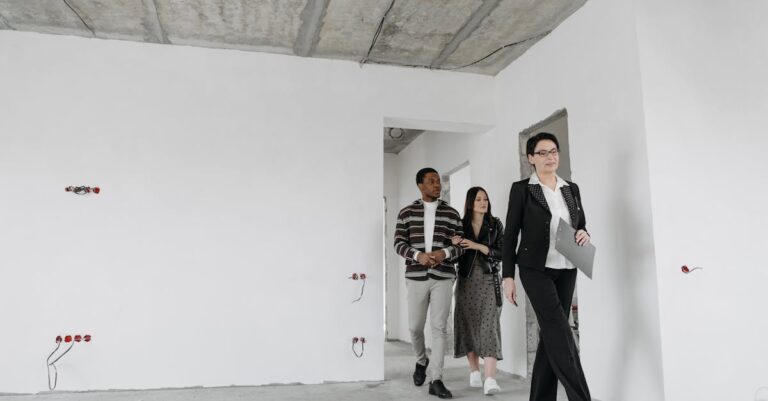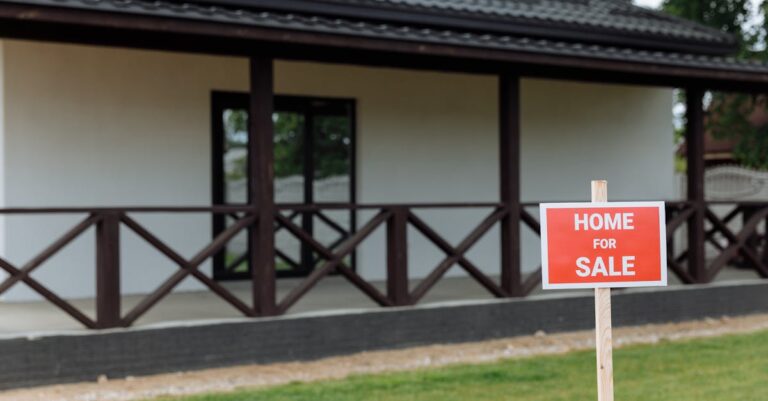Table of Contents
ToggleDeciding whether to rent or buy a home feels a bit like choosing between pizza and tacos—both have their perks, but only one can satisfy your cravings. On one hand, renting offers flexibility and less commitment, perfect for those who enjoy spontaneous road trips or dream of moving to a new city every year. On the other hand, buying a home is like planting your flag in the ground, a bold statement that says, “I’m here to stay, and I’m not sharing my bathroom with anyone!”
Understanding the Renting and Buying Dilemma
Deciding between renting and buying affects financial and lifestyle aspects. Many individuals favor renting due to its flexibility. Renting permits easy relocation, which is ideal for those who frequently move for work or personal reasons. Monthly rental payments often encompass maintenance and property taxes.
In contrast, the prospect of buying a home appeals to those seeking stability. Ownership fosters a sense of independence. Homeowners can customize their space without restrictions. Long-term investment potential enhances buying’s allure, as property values typically appreciate over time.
Costs play a pivotal role in this dilemma. Renting usually requires a security deposit and first month’s rent upfront. Buying demands a larger initial investment, including down payments and closing costs. Comparison of monthly expenses reveals that rent might fluctuate, while mortgage payments often remain stable.
Future plans also drive this decision. If one envisions settling down, buying may be advantageous. Homeownership can lead to wealth accumulation through equity. Alternatively, those uncertain about their trajectory might find renting more suitable, allowing room for change without financial strain.
Ultimately, the choice hinges on personal circumstances. Financial stability and lifestyle preferences weigh heavily in this decision. Careful consideration of each aspect can guide individuals toward the option that best aligns with their goals and needs.
Pros of Renting
Renting offers several advantages that cater to varying lifestyles and financial situations. Flexibility and lower upfront costs stand out among these benefits.
Flexibility and Mobility
Renting provides the ability to relocate easily, perfect for those with transient job situations or evolving personal circumstances. Tenants can change residences without the complications of selling a home. In many cases, lease agreements last 12 months or less, which allows for quick adjustments to living arrangements. The absence of long-term commitment appeals to individuals who prefer testing new neighborhoods or cities without significant financial risks. Being able to move with short notice promotes freedom, enabling renters to respond to new opportunities or changes in life more readily.
Lower Upfront Costs
Rentals generally involve lower upfront expenses compared to purchasing a home. Security deposits and first month’s rent typically represent the primary costs incurred at the beginning of a rental agreement. While buying often requires large down payments and closing costs, renting creates an accessible entry point for housing. Monthly rent usually covers property maintenance and oftentimes includes utilities, further reducing financial strain. Individuals can allocate their savings to other investments or experiences, making renting a cost-effective choice for those who value flexibility and financial freedom.
Pros of Buying
Buying a home presents several key advantages. It offers long-term investment opportunities and instills a sense of stability and control.
Long-Term Investment Potential
Homeownership often leads to substantial financial returns. Property values typically appreciate over time, which means homeowners build equity. According to a 2022 report from the National Association of Realtors, the average homeowner gained about $60,000 in equity over the past year. Investing in real estate also provides tax benefits, such as mortgage interest deductions, further enhancing financial growth. Homebuyers enjoy the ability to leverage their investments, allowing them to borrow against home equity for significant expenses, such as renovations or education.
Stability and Control
Owning a home contributes to greater stability in life. Homeowners establish roots in a community, leading to stronger connections and a sense of belonging. Control over the property allows homeowners to customize their living spaces according to personal preferences, whether through renovations, landscaping, or interior design. Unlike renters, they are not bound by lease agreements and do not face sudden rent increases. This autonomy fosters a more settled lifestyle, ideal for families or individuals seeking permanence. Overall, homeownership cultivates a secure environment where personal and financial goals can flourish.
Factors to Consider
Several key factors influence the decision between renting and buying a home. Evaluating financial ramifications, lifestyle preferences, and current market conditions plays a significant role in making an informed choice.
Financial Implications
Renting often requires a security deposit along with the first month’s rent upfront. Monthly rent payments usually include maintenance and sometimes utilities, making budgeting straightforward. Buying a home entails a more substantial initial investment, including a down payment and closing costs. Homeowners enjoy predictable mortgage payments, unlike fluctuating rental prices, which may increase over time. Tax benefits associated with homeownership can enhance financial stability, allowing homeowners to build equity as property values rise.
Lifestyle Choices
Individuals considering their lifestyles might find renting more appealing due to its flexibility. Renters often sign short-term leases, making relocation to new neighborhoods easier. On the other hand, buying provides a sense of permanence, ideal for those wishing to establish roots. Homeownership allows for personalized living spaces without restrictions from lease agreements. Assessing one’s long-term goals influences this decision, as those uncertain about their future may prefer renting, while those seeking stability might favor buying.
Market Conditions
Current market dynamics heavily impact the renting versus buying debate. Rising home prices can deter potential buyers, making renting a more practical choice in certain environments. Conversely, low-interest rates can motivate buyers to invest in property, capitalizing on long-term value appreciation. Additionally, economic trends and local inventory levels can fluctuate, affecting affordability and availability. Monitoring these conditions helps individuals align their housing decisions with broader economic indicators.
Choosing between renting and buying is a personal decision that hinges on individual circumstances. Those valuing flexibility may find renting more appealing while those seeking stability and long-term investment often lean toward buying. Each option presents unique financial implications and lifestyle benefits that can significantly impact one’s future.
Ultimately, it’s essential to evaluate current market conditions and personal goals. Whether one opts for the freedom of renting or the permanence of homeownership, aligning the choice with financial stability and lifestyle preferences will lead to a more satisfying living situation.





